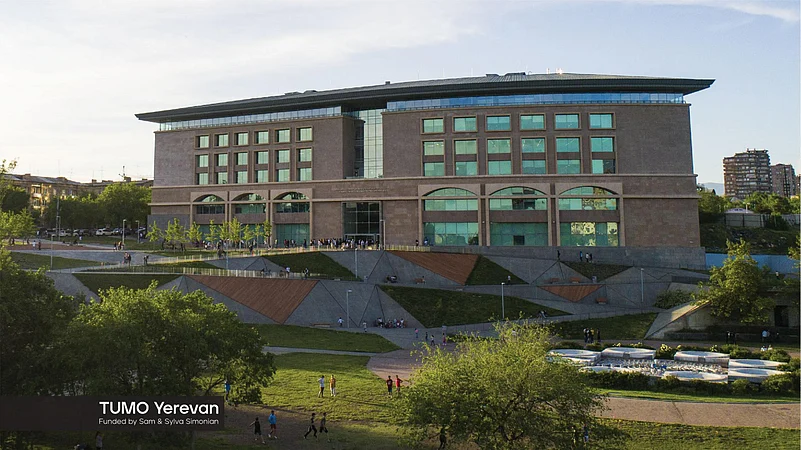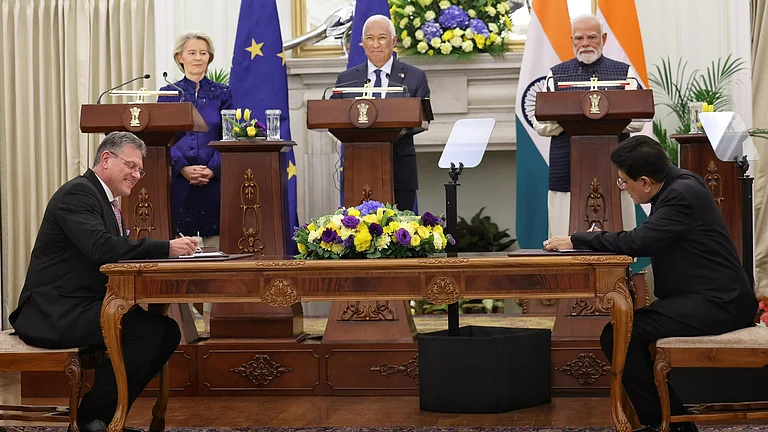
Armenia’s TUMO creative technology education network will launch its first Indian centre in Mumbai this November.
The centre will accommodate 1,500 students annually and serve as a gateway to South Asia.
TUMO offers free, self-paced learning for teens aged 12–18 across 14 digital fields including AI, robotics, graphic design, animation, 3D modelling, web/game development, film-making, and motion graphics.
TUMO, Armenia's groundbreaking creative technology education network, is set to launch India's first centre this November in Mumbai, offering its free, self-paced learning programme across digital fields such as robotics, graphic design, and artificial intelligence.
TUMO has completed pilot programmes and is now set to launch its Mumbai centre, which will accommodate up to 1,500 students, said Pegor Papazian, Chief Development Officer, TUMO.
The programme offers intensive technology education across a wide range of subjects, including game development, motion graphics, robotics, web development, animation, 3D modelling, generative AI, and film-making, he said.
TUMO equips students with high-level digital skills and all for free. TUMO education is free of charge and readily available to all teens aged 12-18, no matter their socioeconomic background or place of residence.
In addition to acquiring hard skills in 14 learning areas at the intersection of technology and design, TUMO students learn how to become self-motivated, develop higher-order skills, and approach learning with a can-do attitude, the institute says on its website. "As a result, our students perform much better in school, even in subjects like math that are not taught at TUMO." TUMO's approach is based on a set of key principles, including choice, hyper-personalisation, mixing age groups, alternating individual and group learning, and replacing diplomas with portfolios.
Papazian said the TUMO curriculum is focused on future-proof skills and trending disciplines and helps teens enhance their potential to innovate and thrive.
TUMO does not offer a degree but the students' work is published to their portfolio, which is sometimes submitted to competitions and festivals, or published online and on app stores, he said.
While the learning model is self-paced, the centre offers training sessions twice a week. Students typically take up to two years to complete a full module.
The Mumbai centre will serve as the gateway to South Asia, offering creative and technology-focused education to 1,500 local teenagers annually.
TUMO's leadership envisions the initiative as a public-private partnership. The programme will integrate self-learning stations, hands-on workshops, and project labs - mirroring the adaptive pedagogy that has driven TUMO's success across continents.
"We offer 14 distinct training programmes, each designed to keep pace with the ever-evolving landscape of technology," he said.
Workshops are led by specialists who are trained to support students at all levels, from beginners to advanced learners.
"We are opening the first center in Mumbai this November, and given the city's size and population, we see the potential for a dozen more in the future," he said. "India has a vast student base, and we plan to expand to cities like Delhi, Bengaluru, and others in the coming years." Outside of Armenia, TUMO has centres in Europe, the US and Japan (Paris, Marseille and Lyon in France, Berlin, Mannheim, Hirschaid and Ludenscheid in Germany, Combra and Lisbon in Portugal, Buenos Aires in Argentina and Gunma in Japan). TUMO has signed up to launch a centre at the National Center for Artificial Intelligence in Astana, Kazakhstan.
Plans have also been announced for centres in cities like Montevideo, Luanda, Takasaki, Los Angeles, Amsterdam, and various German cities.
TUMO centres are supported by donations.
Shikha Academy is its operating partner for the Mumbai centre, with funding from the Shantilal Shanghvi Foundation.
































